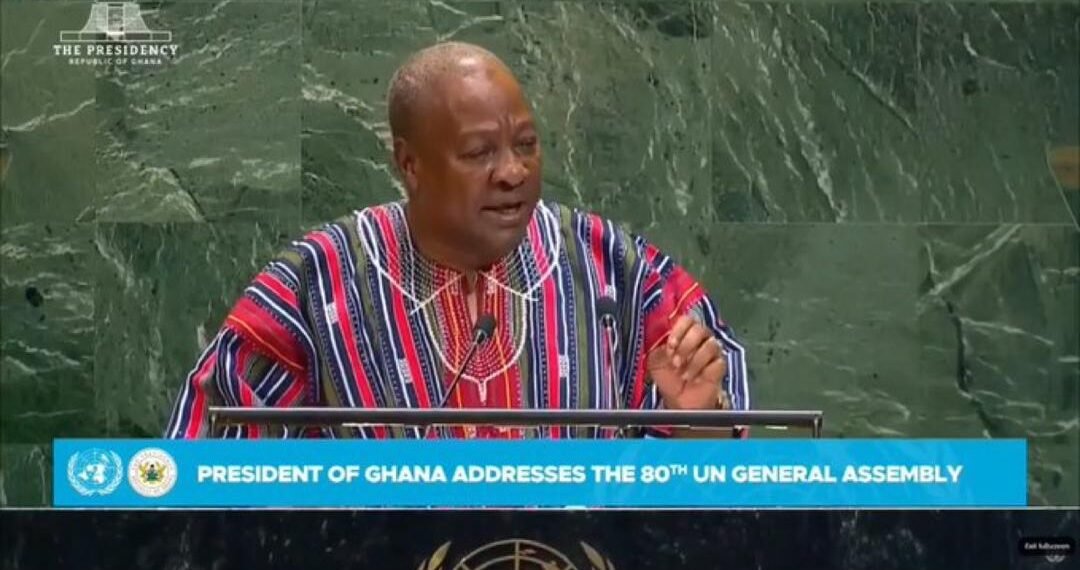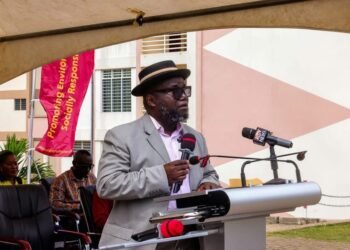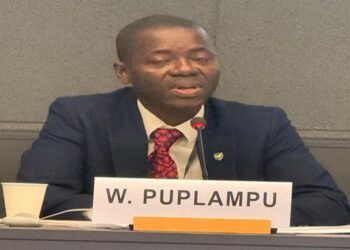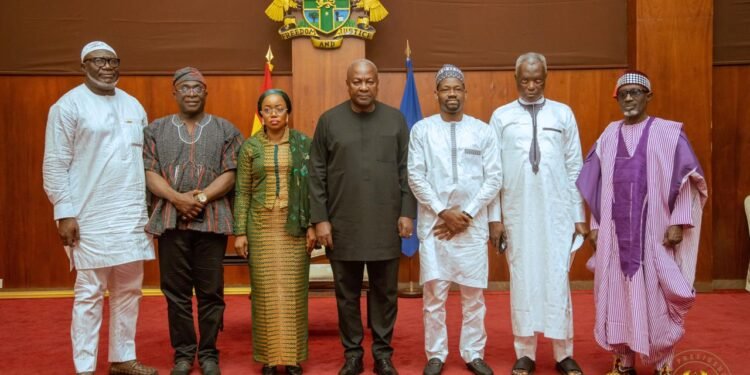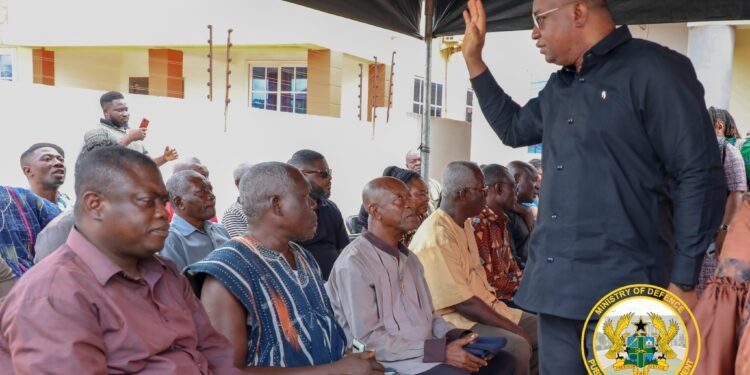At the 80th Session of the United Nations General Assembly (UNGA) in New York, President John Dramani Mahama delivered a powerful message to the international community, declaring that Africa must reclaim sovereignty over its natural resources to secure the continent’s development and dignity.
Speaking against the backdrop of global economic uncertainty, the Ghanaian President stressed that the era of granting vast concessions to foreign entities with little benefit to local populations must end.
He emphasized that foreign investment would continue to be welcomed, but on new terms that prioritize the continent’s interests.
“The days of parceling out vast concession areas to foreign interests for exploitation must come to an end. We’ll continue to welcome foreign investment, but we must negotiate better for a bigger share of the natural resources that belong to us, and we must insist on value addition to these resources.”
President John Dramani Mahama
The President criticized long-standing practices that have left African communities impoverished despite being surrounded by resource wealth. “We’re tired of the continued image of poverty-stricken, disease-ridden rural communities living at the periphery of huge foreign-controlled natural resource concession areas,” he said, painting a stark picture of the inequality that continues to define resource management across much of the continent.
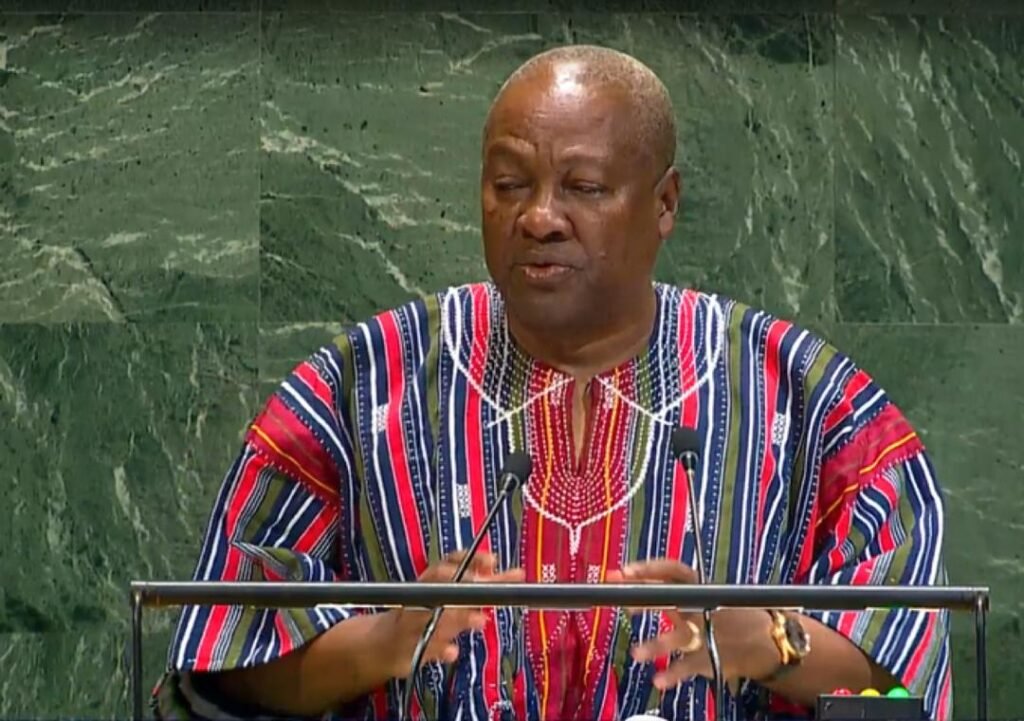
President Mahama went further to highlight how this imbalance robs Africans of dignity and respect. “We’re tired of having people extract the most they can from us and in return, offer us the very least by way of respect, consideration, and dignity,” he stressed, adding that Africa’s historical narrative has too often been shaped by exploitation rather than empowerment.
Calls for a Total Shift
He called for a shift in how the continent is represented, urging recognition of Africa’s resilience and achievements. “We’re tired of not being represented in ways that reveal the richness and complexity of our history or acknowledge all that we have overcome to arrive here in this liminal space of untold possibilities,” he remarked.
President Mahama’s call comes at a time when debates over resource nationalism, sustainable development, and fairer global trade terms are intensifying across Africa.
From gold and oil to lithium and cobalt, the continent’s natural resources remain central to global industrial supply chains, yet African nations continue to face challenges in converting resource wealth into broad-based development. The President’s remarks highlighted the urgency of addressing this paradox.
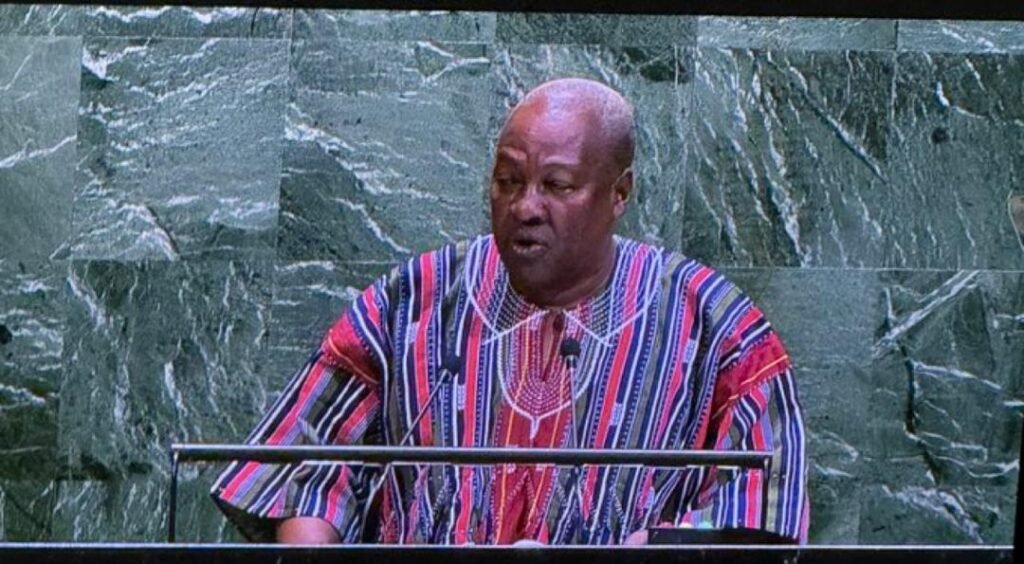
In his speech, President Mahama underscored the need for value addition, pointing out that exporting raw materials alone perpetuates dependency and underdevelopment.
By insisting on industrial processing and local participation in resource-driven sectors, Africa could create jobs, build wealth, and strengthen its bargaining power in the global economy. He suggested that such a strategy is not only an economic imperative but also a matter of justice and equity for generations of Africans.
President Mahama’s statement carried echoes of the continent’s historical struggles for independence, when leaders insisted on political sovereignty as the foundation of progress. Today, his remarks frame resource sovereignty as the next frontier of Africa’s liberation—a necessary step to secure dignity, prosperity, and a rightful place in the world order.
President Mahama’s words also resonated with growing calls within Africa for reform of international agreements that govern resource exploitation. From mining concessions to oil contracts, many deals have long favored multinational corporations at the expense of African states and their citizens. His statement reinforced a collective continental demand: that Africa must no longer be shortchanged in the global exchange.
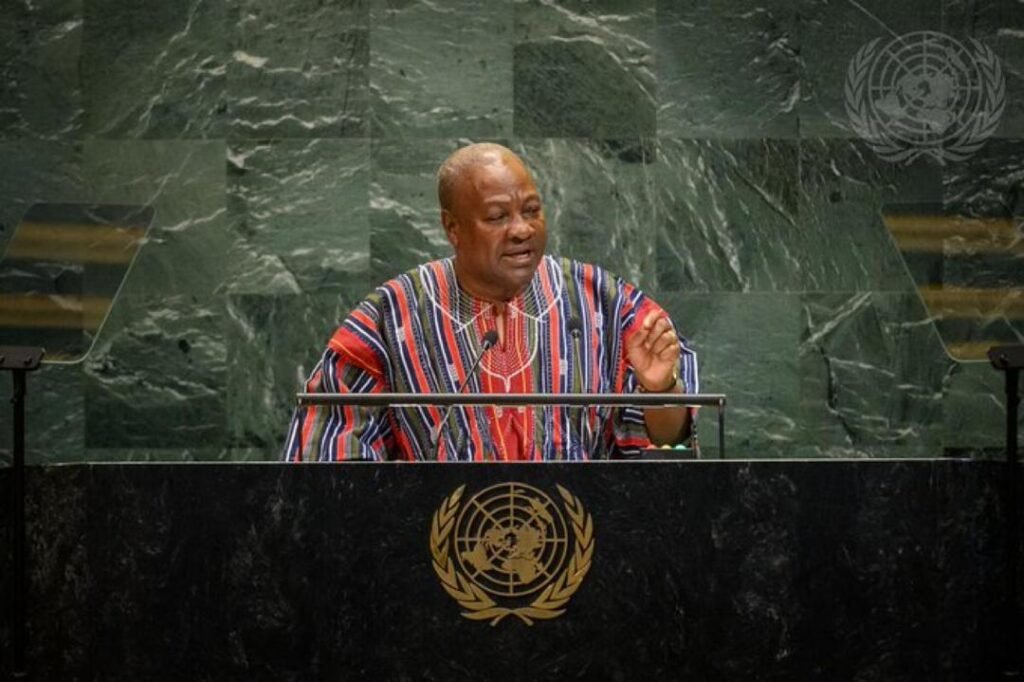
As the Assembly listened, President Mahama’s message was both a rebuke of past injustices and a call to action for the future. “We must negotiate better,” he insisted, reminding the world that Africa is no longer content with marginal benefits from its vast wealth.
Instead, the continent is poised to demand respect, fairer terms, and a central role in shaping global economic systems. For President Mahama, Africa’s natural resources are not just commodities to be traded, but tools for empowerment and symbols of sovereignty.
His address at UNGA80 served as a reminder that the continent’s development must be built on a foundation of equity, justice, and dignity—values he argued are long overdue in Africa’s dealings with the wider world.
READ ALSO: Sam Jonah Urges Stronger Anti-Galamsey Enforcement, Community Involvement

